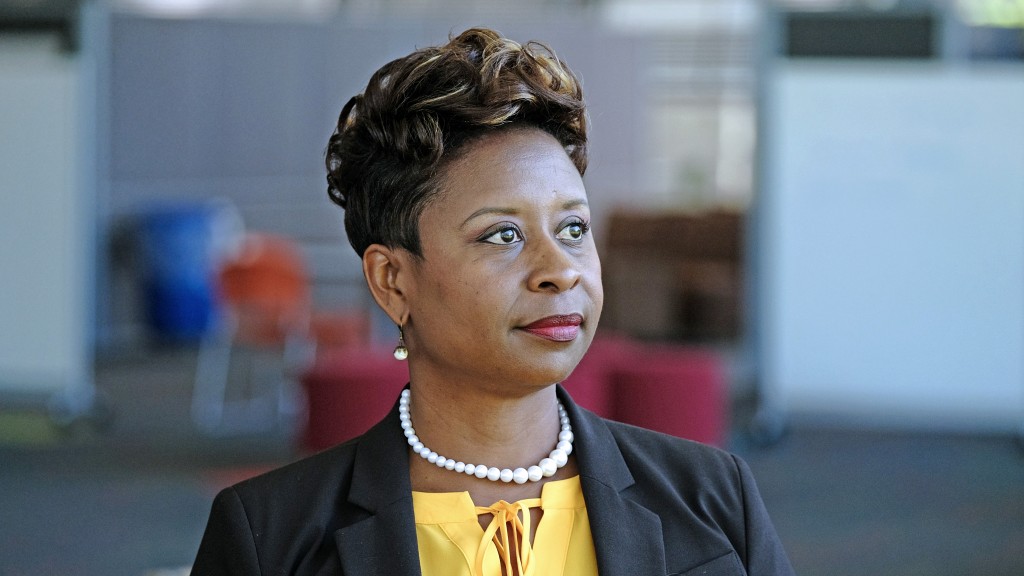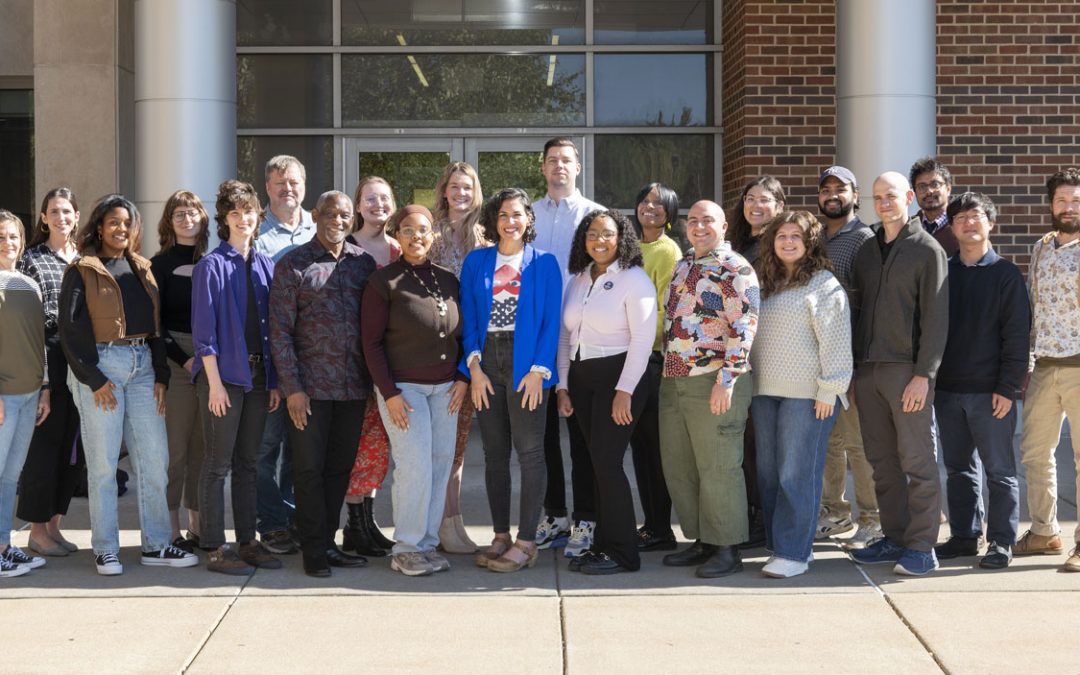
In a study she conducted while pursuing her doctoral degree in education at UMSL, Stacy G. Hollins, PhD 2015, explores “the digital divide” through the experiences of individuals who have little to no access to technological resources. (Photo by August Jennewein)
Last month, when American Libraries magazine highlighted “the best original student research” from the past year, Stacy G. Hollins’ dissertation made the list. And while the recent University of Missouri–St. Louis graduate was surprised by the recognition, the publication’s interest in her scholarship also makes a lot of sense.
“My focus was on the lack of access to technology – not just hardware, but things like access to computer labs and libraries,” says Hollins, who earned her PhD in education from UMSL in December 2015.
Titled “The Digital Divide through the Lens of Critical Race Theory: The Digitally Denied,” her scholarship could help inform policy decisions and library practices, according to the magazine article.
“Libraries and computer labs must reconsider open hours and staff availability at times that would be beneficial to students who lack access or who have work or family obligations,” the writer concludes from Hollins’ study, which specifically looks at the impact of the availability of technological resources and support on student success.
Hinging on the experiences and narratives of local African American community college students and professors, Hollins’ dissertation topic stemmed from her personal experience teaching at the university level. Over the years, she has observed “a common misconception” that all college students come to campus equipped with the technology skills and access to resources necessary to their success.
“Because I am a technology and business professor, many African American students have shared their stories with me of hardships relating to the lack of access to the Internet, hardware, software, technology training, technology support, and community resources,” Hollins writes in her introduction.
As the project developed during her time as a doctoral student at UMSL, faculty advisers including the College of Education’s Carl Hoagland and Matthew Davis served to further ignite her interest in such research and in “advocating for students who don’t have a voice.”
“They really opened my eyes to the fact that we’re not on a level playing field,” Hollins says. “Carl and Matthew were for me the heart of a wonderful experience as a student at UMSL, because they get it.”
Storytelling – in this case the personal experiences of students interviewed as part of Hollins’ research – is a critical piece of her work, which sheds light on the impact of everything from limited evening hours at computer labs and public libraries to a lack of Wi-Fi in particular communities.
“So many people that I talked to while working on the project said it resonated with them,” Hollins says, adding that she hopes her research helps raise awareness of such access issues and their correlations to student success.
Such success is a driving passion for Hollins. After more than a decade teaching at St. Louis Community College–Florissant Valley, where she is chair of the Department of Information Systems, she just recently accepted a job as an associate professor of information systems at Maryville University.
Teaching courses ranging from computer literacy and web publishing to information systems for business and more, she’s excited to continue that work in a new role.
“I love when students get it and can start visually understanding what I’m trying to teach them,” Hollins says. “I really enjoy seeing that light bulb come on for them.”
To read more about Hollins’ dissertation and the other nine selected by American Libraries, which is the flagship magazine of the American Library Association, click here.















